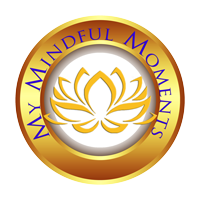Acceptance of what is and recognition of how you got there is one of the first and most profound aspects of beginning a mindfulness practice. There are a few different ways you might introduce mindfulness practices into the workplace, and your workplace culture will often help to determine whether an offering such as mindfulness will take hold effortlessly or not. This leads us to conclude that workplace culture is a core element of where change might originate from, as it is the “collective” consciousness of the workplace. Our focus in this week’s article is first on evaluating your workplace’s culture and then determining how best to begin introducing mindfulness practices into said culture. Let’s dive in.
What is the culture of your workplace like? Have you fostered an environment full of competition? Striving? Being better than others? Perfectionism? Earning approval and accolades? Or have you fostered a work culture of collaboration? Cooperation? Creative input and valued ideas from all team members?
Of course, these are two pretty extreme ends of the spectrum, but you understand the idea. As a mindful leader, it’s up to you to take some time to reflect upon your contribution to this workplace culture or attitude, and whether it is a culture or attitude that serves you well or that you feel might be detrimental. If it’s neither here nor there, then it isn’t a cause for concern, but think about some ways in which your own attitudes and behaviors might be reflected back to you by those whom you are leading.
The idea that, “(sh)it rolls downhill,” isn’t only applicable to “negative” or “bad” consequences or people getting yelled at or into trouble. This stereotype comes from “leaders” not being fully capable of taking responsibility and then taking it out on their subordinates, whether consciously or unconsciously. This saying is very prevalent in the military but is a great illustration of some of the ways we behave that society tells us are “normal” and “acceptable” but that we don’t even agree with when we truly think about it.
So why do we behave in those ways anyway?
What that saying truly conveys, in my opinion, is that everything that happens on your watch is a reflection of your leadership style, attitudes, and behaviors. You lead by example whether you know you’re doing it or not, and your team will follow you, whether they realize they’re doing it or not.
Easy Ways to Encourage Mindfulness
Be aware of the example you are setting. If you would like to see your team doing certain things or behaving in certain ways, then it is best to lead by doing those things and behaving in those ways yourself. This is one way you can align your thoughts, words, and deeds and step into your true authenticity. This alignment will make every decision effortless (not to be confused with “easy”).
The breath is life. Simple deep breathing exercises are an excellent tool not only for encouraging mindfulness, but also for calming anyone who may be feeling anxious. We all know that work can be a stressful place for many, so being able to provide your team with a quick and easy tool to get them relaxed and back on track can only help your organization and its productivity.
Deep Breathing Exercise: Take a calm, deep breath in through your nose for the count of 6, then hold for the count of 6, then exhale slowly from your mouth for the count of 6. If you have a larger lung capacity, you can also do the count of 7 or 8, or vice versa if you have a smaller lung capacity you can do the count of 4 or 5. The key is to slow everything down and relax.*
Teach your team about mindfulness. As you progress on your own journey into mindfulness practice, you will likely be presented with numerous opportunities to share how it is helping you with your team. You will likely begin noticing the benefits within your own life experience after a few days to a week of daily practice, so it really doesn’t take much. Taking the time to notice positive things, appreciate them, and point them out to others rather than focusing on the negative and complaining about it is one shift in your own behavior that will have a massive positive ripple effect within your organization as a whole.
Emotional connection is important. Your team will feel much more confident and solid if they know that you’re backing them up and supporting their work, and mindfulness practice can help make this effortless. The happier your team is at work, the more likely they are to give you their best input.
Nobody likes being micromanaged. As a mindful leader, it is your mission to let go of the need for control because it will drive you crazy sooner or later. Allowing your team to brainstorm, make decisions, get creative, and tap into their own innovative mind so that they can put in their best work for you is the goal, right? That can’t happen if the team is constantly worried about what the boss might think or say, so take a few steps back and see what happens. The more opportunities your team is given to fail, the faster they will fail forward into being a killer independent team in need of minimal – if any – direction from you.
Incorporate mindfulness into meetings and conversations. Opening a meeting with a quick deep breathing exercise or 5-minute guided meditation is a great way to begin. You may also have an end of meeting discussion focused specifically on mindfulness and gaining clarity around that topic for those who are still skeptical, frightened by the idea, or otherwise resistant or lacking understanding.
Mindfulness is such an all-encompassing idea that it’s no wonder some people have a tough time understanding it at first. It seems so simple to those who practice it because everything leads back to and connects with the same underlying calm, loving energy within. If mindfulness is a foreign concept to you or anyone on your team, you may find the following helpful.
Mindfulness, in its simplest form, comes down to paying attention or being aware and judging nothing reactively. This includes everything within you as well as around you. Observe and don’t judge. This leads to acceptance and will soon lead you to every other aspect, but these are some of the most important attitudes to start with. The next one is learning to develop trust in the process of life and everything else, but this becomes much easier to do after you have begun to tap into your Zen state on purpose for a little while.
No matter where you might be on your journey, mindfulness can help you gain traction and pick up momentum in the direction you wish to go. With a team, you can pick up momentum that much faster while also helping them to live a better, healthier life on every level. Mindfulness is a powerful and empowering win-win for everyone.
Thanks for joining us this week! We hope that this information resonates with you and helps you to continue improving yourself, your team, and your organization.
Thank you so much for being here, learning, and growing with us!
For more information about the Mindfulness Movement or the International Mindfulness Federation, please visit:
http://executivecoachinguniversity.com/mindfulness-movement
* The Science of Slow Deep Breathing
https://www.psychologytoday.com/us/blog/neuraptitude/201602/the-science-slow-deep-breathing









